Department of Clinical Psychology
Faculty of Human SciencesFor those who wish to enroll in 2026
For information on the 2026 curriculum, please see the latest university guide below.
Department News
What is Department of Clinical Psychology?
We face the most important thing for people: their heart.

In today's world, where information is becoming more complex and various forms of communication are exchanged, the importance of keeping people's minds healthy is being emphasized. Department of Clinical Psychology aims to train professionals who are always close to people and support their "minds." To achieve this, students learn knowledge, skills, and attitudes related to clinical psychology and mental health and welfare studies. We are looking for students who have a desire to inquire into and empathize with people. This department is recommended for people who have had many exciting experiences, such as interacting directly with many people, reading many literary works to deepen their understanding of the depth and mystery of the human mind, appreciating art and music, and creating their own works.
Admission Policy
- 01
- Those who have an interest in psychology and mental health and welfare studies and are highly motivated to learn
- 02
- People who can consider things from multiple perspectives and organize their own thoughts
- 03
- People who want to learn the attitude and skills to empathize with people and provide appropriate assistance, and who want to contribute to society
Characteristics of the Department
01 Psychology and welfare experts
This is a balanced program of study that includes psychology, mental health and welfare, and social welfare. Students will acquire the knowledge and skills to support children, sensitive young people, the elderly, and people with disabilities.

02 Deepening expertise
From the third year, students split into three courses: the Certified Psychologist Course, the Mental Health and Welfare Worker Course, and the Clinical Psychology and Welfare Course, further developing their specialized knowledge and skills in each course.

03 Mental Health and Welfare Worker Exam Preparation Course
To qualify as a mental health social worker, students must pass a national exam. In the mental health social worker course, we hold preparation classes every week from February of the third year, and we teach all students to pass the exam.

Advanced Program
A motivational support program!
Eastern Region Three-University Collaborative Practical Support Program
This program is a community contribution activity conducted in collaboration with Kyushu Sangyo University, Fukuoka Women's University, and Fukuoka Institute of Technology as a project of Department of Clinical Psychology from our university participate and are at the center of the collaboration between the three universities. In the Dementia Supporter Training Course, participants will learn about "Humanitude," which is attracting attention as a form of dementia and comprehensive care. In the dementia support training, participants will experience and deepen their understanding of appropriate support methods through role-playing.
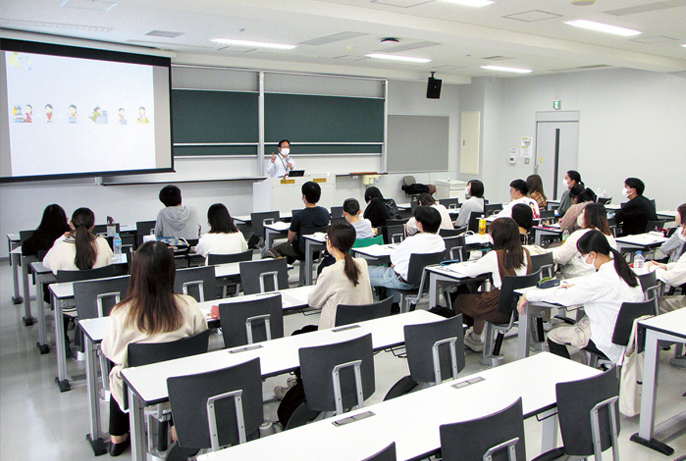
Four-year learning process
Building the foundations of learning in the first year
Through participatory and experiential classes, students will learn the fundamentals of communication and emotional support.
Examples of subjects in Department of Clinical Psychology
Subjects in the Department of Department of Clinical Psychology: Fundamentals of Human Sciences, Introduction to Health Sciences, Human Development, Introduction to Psychology, Developmental Psychology, Information Processing Seminar A, Information Processing Seminar B, Introduction to Clinical Psychology, Introduction to Mental Health and Welfare, Structure and Function of the Human Body and Diseases, Interpersonal Relations, Sociology and Social Systems, Perception, Cognitive Psychology, Learning, Psychology of Language, Animal Psychology, Child Psychology, Psychology of Thinking, Psychological Research Methods, Social Security, Social Security II I, Principles and Policies of Social Welfare I, Principles and Policies of Social Welfare II, Primary Seminar
etc.
2nd year: Building the foundations of learning
You will hone your communication skills and gain a solid foundation in the specialized mental health care provided by clinical psychologists and mental health and welfare professionals.
Examples of subjects in Department of Clinical Psychology
Interpersonal support methods and behaviors, Mental illness and its treatment A, Mental illness and its treatment B, Community psychology, Foundations and professionals of social work, Modern mental health issues and support I, Modern mental health issues and support II, Community welfare and comprehensive support systems I, Community welfare and comprehensive support systems II, Legal systems supporting rights protection, Welfare for the disabled, Criminal justice and welfare, Psychological statistics, Basic psychology experiments, Introduction to psychological research, Psychological support methods, Psychology of the disabled, Psychology of children with disabilities, Infant psychology, Welfare psychology, Education and school psychology, Neuro-physiological psychology, Industrial and organizational psychology, Health and medical psychology, Justice and criminal psychology
etc.
Third year: In-depth study of specialized subjects
Each course provides students with practical training in the theories and methods of interpersonal assistance through exercises and practical lessons.
4th year: the culmination of 4 years of learning
You will utilize what you have learned so far to carry out exercises and practical training to learn advanced specialized content.
Select a course from the third year
-
Certified Psychologist Course
Supporting students who wish to proceed to graduate school and become licensed psychologists
This course provides basic subjects for the national exam for licensed psychologists, and provides education with a view to continuing on to graduate school. Students will learn a wide range of clinical psychology topics, including counseling and community support, and will gain an understanding of the activities of clinical psychologists in a variety of fields, including the medical and educational fields, and will acquire the basics of interpersonal support.
- Example of lessons
- Psychological training, Psychological seminars, Duties of a licensed psychologist, Deep psychology, Psychological interview training, Community approach seminars, Psychological statistics seminars, Clinical psychology seminar A, Clinical psychology literature reading basics, Clinical psychology seminar B, Psychological assessment, Emotions, Personality psychology, Graduation thesis
-
Mental Health and Welfare Worker Course
Provides training to acquire national certification as a mental health and welfare worker
Mental health and welfare workers provide various consultations and assistance to people with mental disabilities who are struggling with issues in their daily lives, including work, housing, income, and medical care. Upon graduation, students will obtain national certification as mental health and welfare workers, and will be trained to become professionals who can play an active role in a wide range of specialized institutions, including welfare, law, medical health, and education.
- Example of lessons
- Social Work Seminar (Specialty) I, Social Work Seminar (Specialty) II, Social Work Practicum Supervision I, Social Work Practicum Supervision II, Social Work Practicum, Principles of Mental Health and Welfare I, Principles of Mental Health and Welfare II, Mental Health and Welfare Seminar, Social Work Theory and Methods I, Social Work Theory and Methods II, Theory of Mental Disability Rehabilitation, Theory of Mental Health and Welfare Systems, Fundamentals of Social Welfare Surveys, Social Work Theory and Methods (Specialty) I, Social Work Theory and Methods (Specialty) II
-
Clinical Psychology and Welfare Course
Nurturing professionals who can play an active role in the local community as psychological welfare professionals
In order to meet the needs of the local community, where people live with a variety of mental and lifestyle issues, students will learn a wide range of subjects in clinical psychology, mental health and welfare studies, and social welfare studies. Upon graduation, students will acquire qualifications as certified psychologists and social welfare officers, and will be trained to become professionals who can contribute to the local community as psychological welfare professionals.
- Example of lessons
- Psychological assessment, psychological interview practice, community approach seminar, principles of mental health and welfare I, principles of mental health and welfare II, social work theory and methods, social work theory and methods II, graduation thesis, specialized seminar, mental disability rehabilitation theory, mental health and welfare system theory, clinical psychology seminar A, clinical psychology seminar B, emotion and personality psychology
Class Pickup
Knowledge and techniques used in psychological support
Learn broadly
Psychological support method | Associate Professor Kyoko Meibu
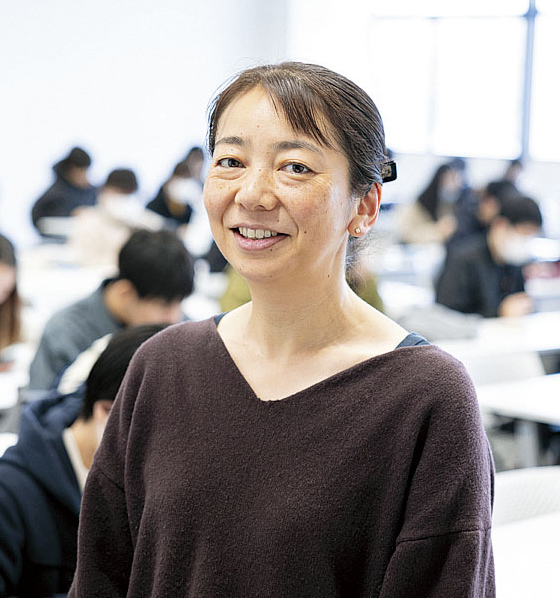
Certified psychologists and other psychological professionals use techniques backed by various specialized knowledge in their counseling. This class will introduce a wide range of such knowledge and techniques. There will also be an opportunity to try out some of the techniques during the lecture. The aim of this class is to provide an introduction to specialized techniques while also helping to ease your own mind.
Experience a real psychology experiment
Acquire basic skills in psychology research
Psychological Experiments | Lecturer Takanori Hiwatashi

The purpose of this class is to acquire basic psychology skills by experiencing actual psychology experiments. Through four experiments, students will learn the entire process from conducting an experiment, collecting data, basic data analysis, and writing a report in a psychology format. The experiments focus on familiar themes such as measuring personal space and spreading rumors.
Seminar Pickup
Mikie Hashimoto Seminar
Specialization as a mental health social worker
Enhance

In this seminar, students from the 3rd and 4th year of the Mental Health and Welfare Worker course will form groups and develop research presentations. Each group will choose a mental health and welfare-related topic, take the time to conduct literature research and interview surveys, and then give a presentation. Students will receive guidance from teachers between classes and will deepen their learning until they are ready to present.
In the seminar, classes are centered around group discussions. By working together with my peers on assignments, I was able to learn many different opinions and ways of thinking, which led to new discoveries. By deepening my knowledge of mental health and welfare, I am now looking forward to going on an internship at an actual site.
Yoshida Suzu, 3rd year
Tokai University Fukuoka High School/
Fukuoka

Naohiro Nakatomi Seminar
To protect and nurture children's minds
Derive new knowledge

"What kind of academic knowledge of psychology do you think is necessary to protect and nurture the minds of wounded children?" Our laboratory is primarily engaged in research into pediatric psychology, such as the impact of abuse on children's minds and support for children in child welfare facilities. We believe that your learning and research will lead to an increase in the number of happy children. Why not try to find the answer to the first question through your research?
I am conducting research on the theme of "The relationship between the way children in child welfare facilities interact with children and their emotional independence." My goal is to clarify how children can be promoted to become emotionally independent by staff members, and to apply the results to the actual workplace.
Rana Kayano 4th year
Kasumigaoka High School/Fukuoka
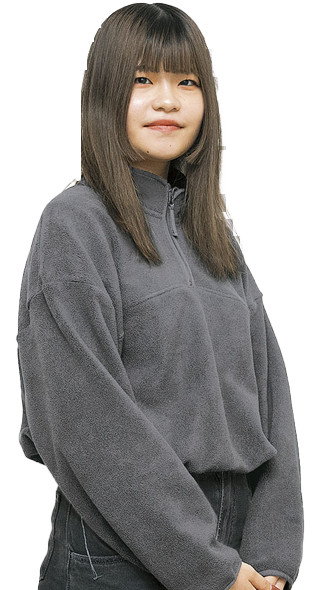
Qualifications and career path data
Qualifications to aim for
- ■ Licensed Psychologist (Graduate School)
- ■ Clinical Psychologist (Graduate School)
- ■Certified psychologist
- ■Mental health and welfare worker
- ■Qualifications for appointment as social welfare director, etc.
Industry Graph

Main Employment Destinations
Fukuoka Prefectural Government / Fukuoka Prefectural Police Headquarters / Japan Organization for Employment of the Elderly, Persons with Disabilities and Job Seekers (Independent Institution) / Japan Occupational Health and Safety Organization / Medical Corporation Suikai Yahata Kosei Hospital / Sakurajuji Co., Ltd. / Suikokai Kai Hospital (Medical) / Keiwakai Tagawa Jikei Hospital (Medical) / Hiroshima Prefectural Federation of Welfare Agricultural Cooperatives / Soseikai (Social Welfare) / Fukuoka Akebono Kai (Social Welfare) / Kyosei no Sato (Social Welfare) / Oita Prefectural Social Welfare Corporation (Social Welfare) / Seijoen Child Welfare Facility Seijoen / Yutoku Pharmaceutical Co., Ltd. / Zenkyoken Co., Ltd. / Benesse Style Care Co., Ltd. / Tomita Pharmaceutical Co., Ltd. / Medical Care Service Co., Ltd. / Nippon Steri Co., Ltd. / Nichii Gakkan Co., Ltd.
Graduate Interview
Reon Takeo
Hita High School/Oita
- Employment
- Social Welfare Corporation Seijoen
Child welfare facility, Seijoen, child guidance counselor
Learning from this department and gaining perspectives on both "psychology" and "welfare" helped me to choose my career path. I want to create a safe place for children who cannot live with their parents for various reasons.
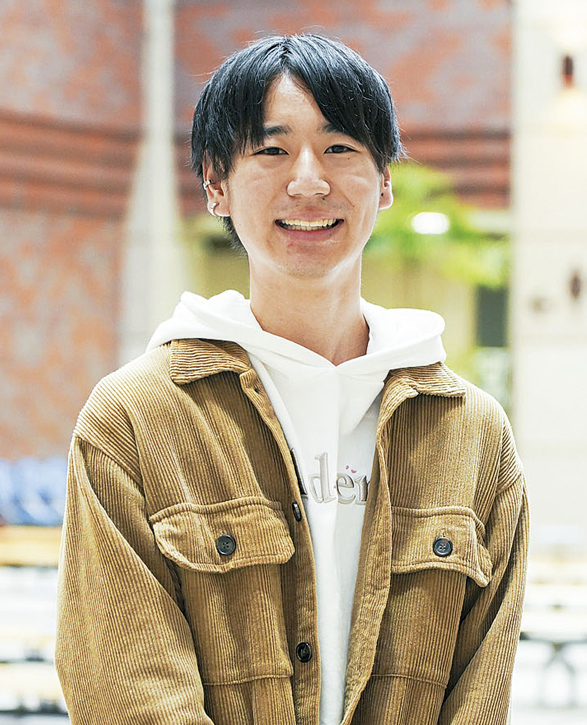
Hirai Aya
Kokuraminami High School/Fukuoka
- Employment
- Medical Corporation Keiaikai Fukuma Hospital
Mental health and welfare worker
At my current workplace, I aim to acquire a deeper and broader understanding of what I learned in the Department of Department of Clinical Psychology. I want to absorb everything I can and continue to grow as a mental health and welfare worker who patients can rely on.
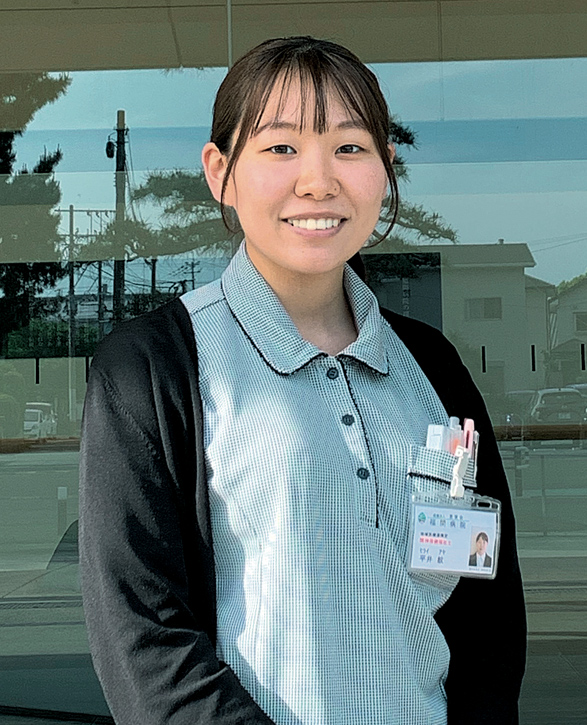
Kotomi Kokubun
Yahata High School/Fukuoka
- Employment
- Kyushu Sangyo University Graduate School
I chose to go to graduate school because I wanted to become a licensed psychologist. My dream for the future is to study hard and become a licensed psychologist that people can trust and feel safe in, so that I can help people in need.
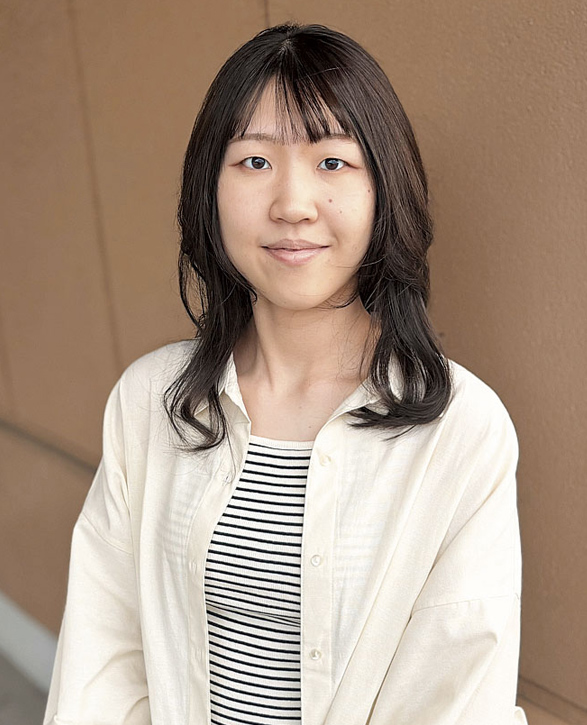
If you cannot view PDF files, please download Adobe Reader.






